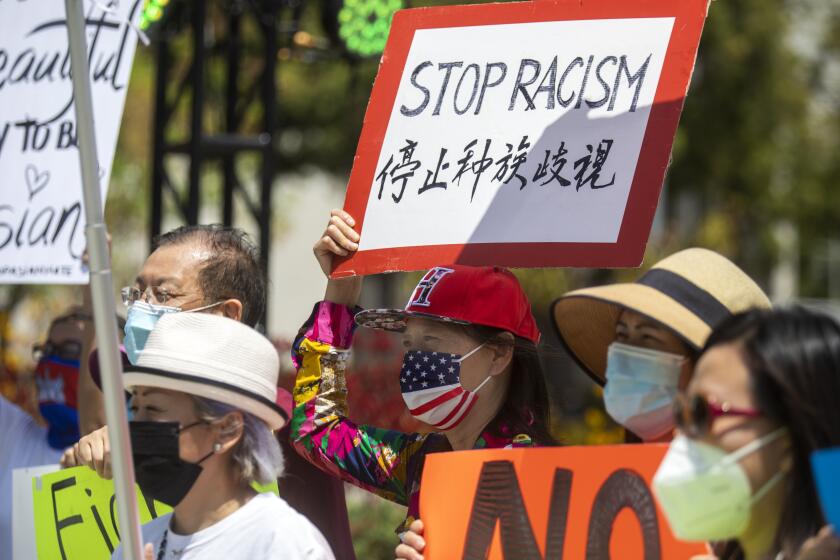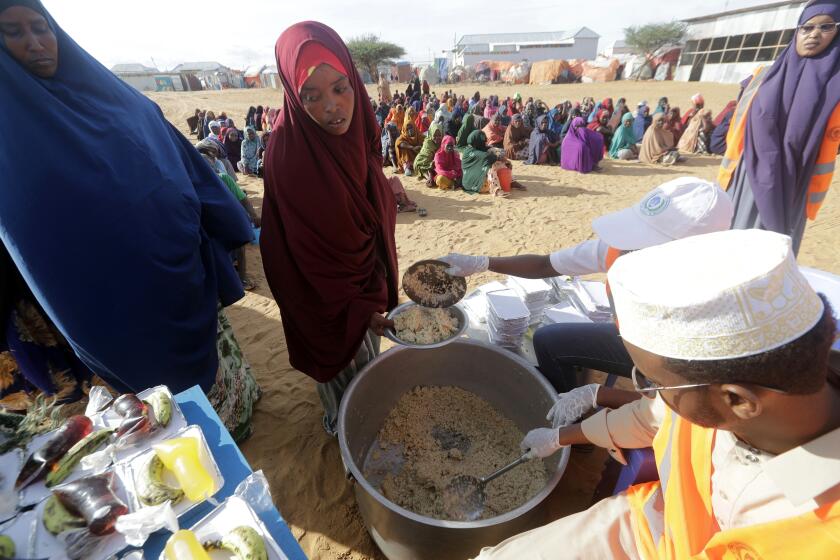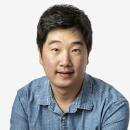Hate crime suspect sought after defacing Koreatown mosque
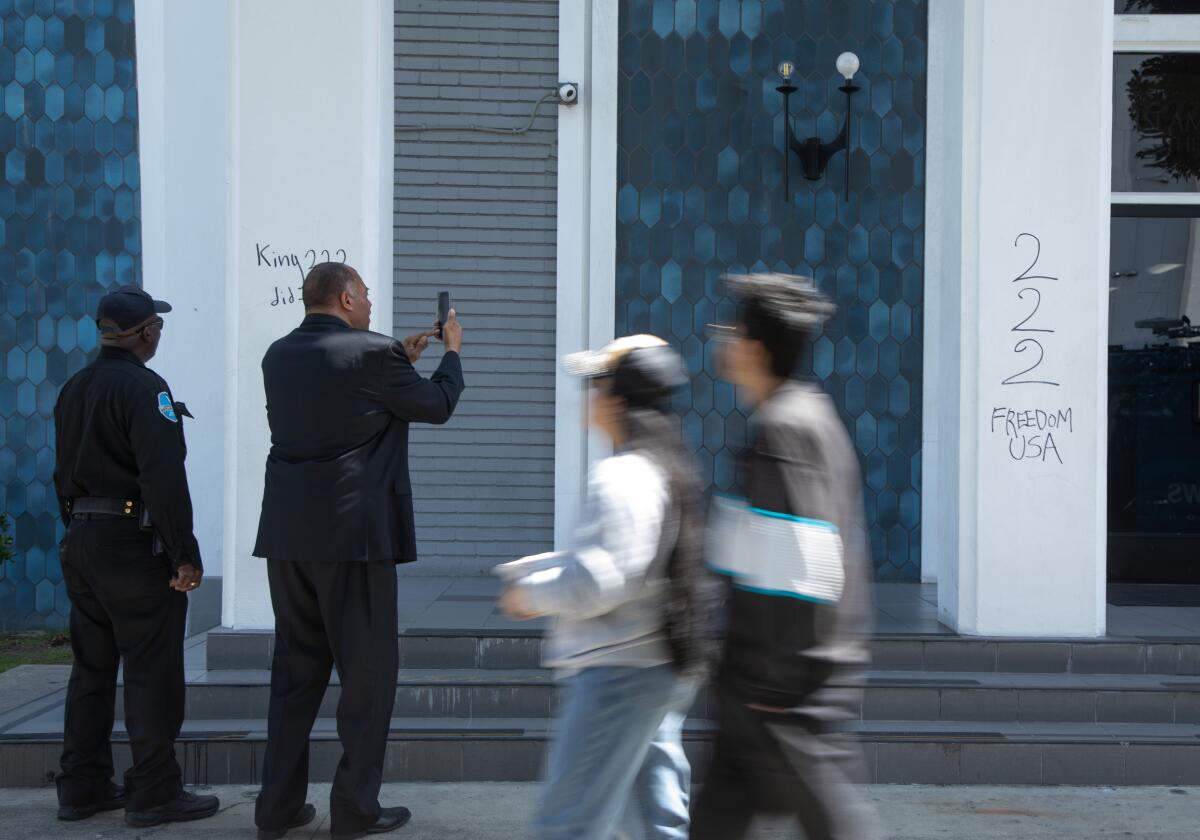
- Share via
Los Angeles police are searching for a man seen on video defacing a mosque in Koreatown with “anti-Islamic hate words” on Sunday, authorities said.
Surveillance camera footage shows the suspect using a permanent marker to write on the Islamic Center of Southern California, a mosque and cultural center on Vermont Avenue, about 12:40 a.m., according to the Los Angeles Police Department.
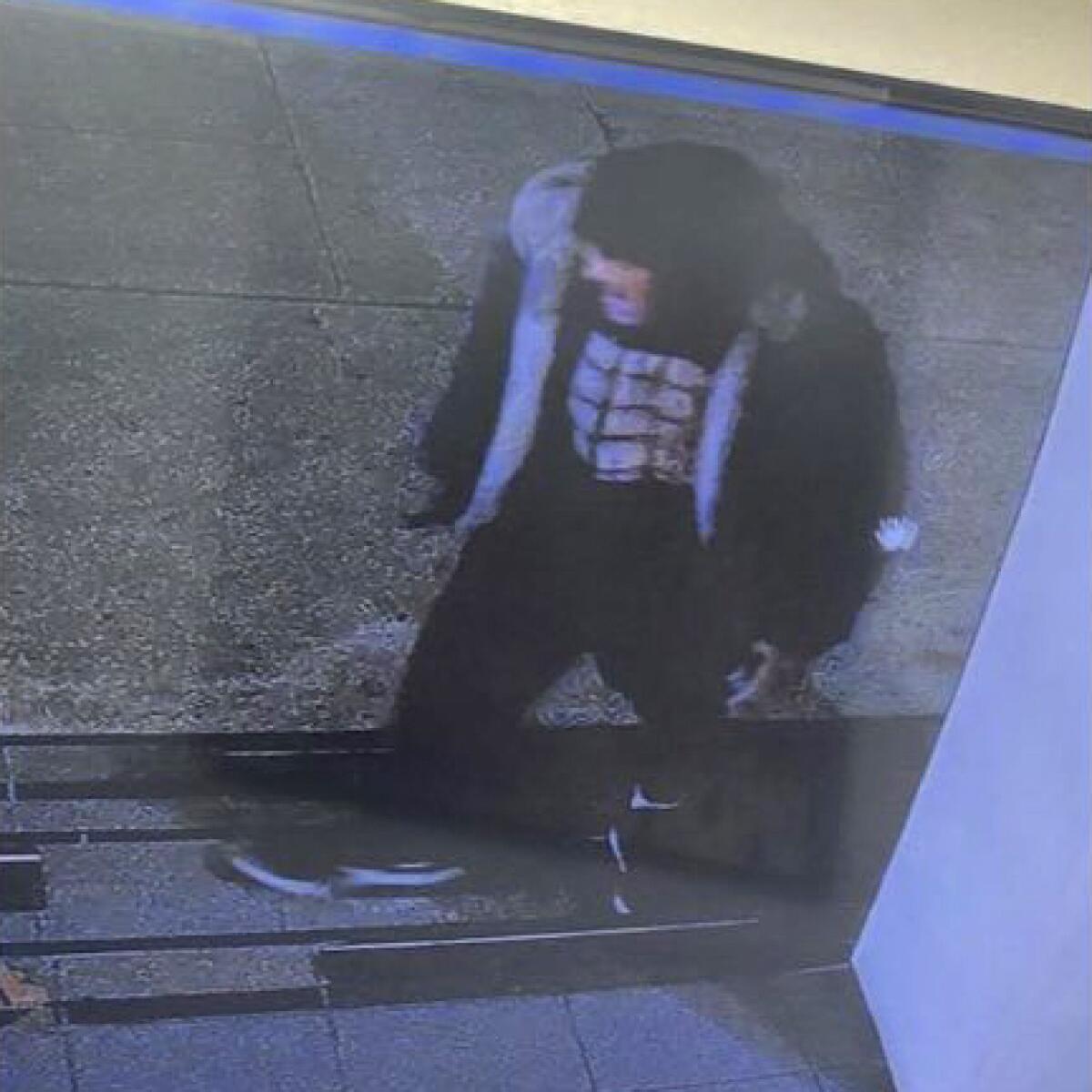
Police released a photo of the man, who is believed to be in his 40s, around 5 feet 9 and about 180 pounds. He was wearing a black beanie, black shirt, black shorts, black pants and black shoes.
The man was last seen fleeing north on Vermont Avenue.
“This is an appalling act of vandalism targeting the center where innocent individuals gather for their daily religious observances,” the Islamic Center of Southern California said in a statement, adding that the community was “deeply saddened and disturbed.”
L.A. County documented 786 hate crime victims in 2021 — the most since 2002. Blacks, Latinos, Jews and LGBTQ people were among the most-targeted groups.
The vandalism occurred during Islam’s holy month of Ramadan, which began in late March. Muslims perform daily prayers and refrain from eating or drinking from shortly before sunrise until sunset during the month in order to bring them closer to God.
At a Monday afternoon news conference at the Islamic Center, LAPD Chief Michel Moore condemned the act, which he said is being investigated as felony vandalism.
“There are individuals out there, as I said, that are trying to pull us apart,” he said.
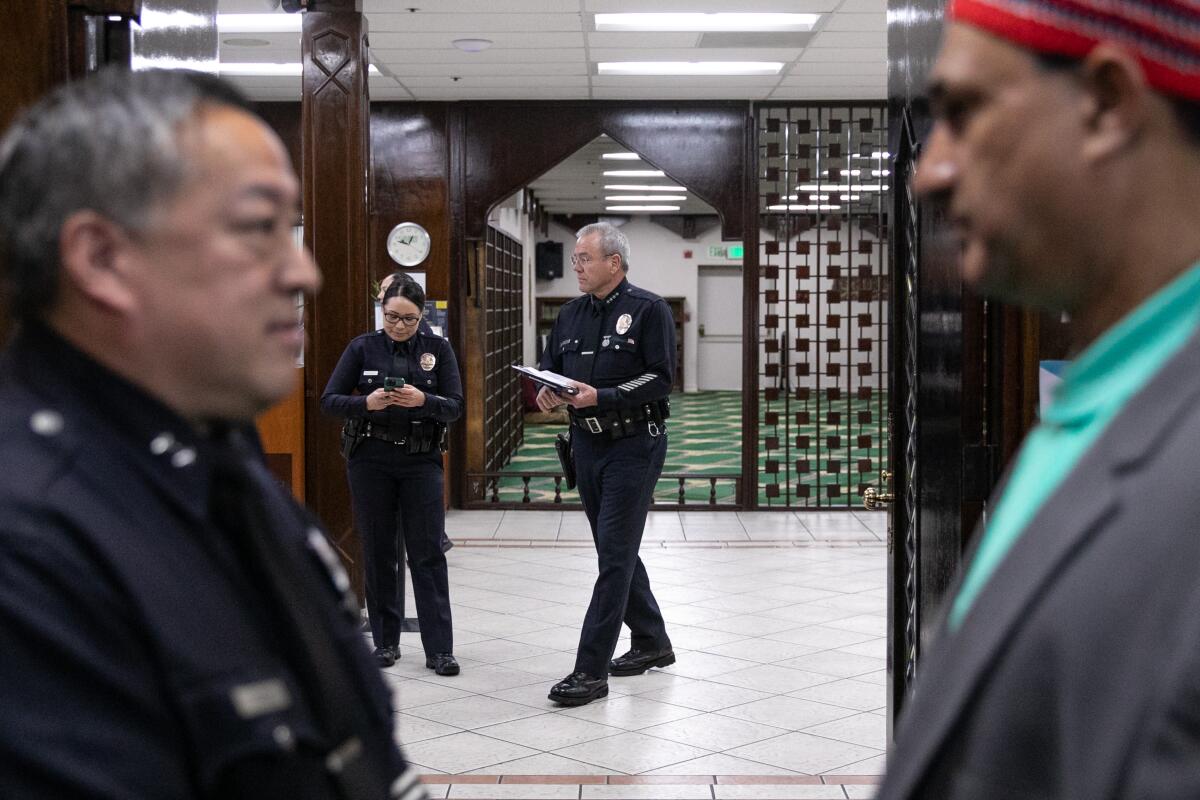
Police officers are working with neighboring businesses and homeless residents to identify the suspect, who based on limited information is believed to be an unhoused person in the area, Moore said. With Ramadan, Passover and Easter all coinciding, the LAPD has also deployed additional resources to patrol houses of worship.
Omar Ricci, spokesman for the Islamic Center, noted that an imam in New Jersey was stabbed during Sunday prayers at a mosque. He also noted an Israeli police raid on Al Aqsa Mosque in Jerusalem last week.
“All of this has come together and it caused certainly a lot of pain for us as a community,” he said.
The holy month of Ramadan coincides with the longest drought on record in Somalia, leaving many Muslims struggling to break their fasts.
Hate crimes in Los Angeles County have been on the rise, surging to their highest level in nearly two decades, according to the most recent annual report by the county’s Commission on Human Relations.
There were 786 victims of hate crimes in 2021, an increase of 23% since 2020 and the most since 2002, according to the report released in December. More than half of the crimes were motivated by racism.
Hate crimes motivated by religion went up by 29%, from 86 in 2020 to 111 in 2021, and made up 14% of all hate crimes. Incidents against Muslims, Jews, Christians and Scientologists all rose.
Los Angeles as a city has seen a slight decrease in reported hate crimes this year compared with the same period in 2022, Moore said Monday. The city is on pace for a 19% decrease from 2022 to 2023.
“It’s a glimmer of hope, but it’s also one we should recognize and use as momentum,” Moore said. “We don’t have to accept the status quo.”
More to Read
Sign up for Essential California
The most important California stories and recommendations in your inbox every morning.
You may occasionally receive promotional content from the Los Angeles Times.
